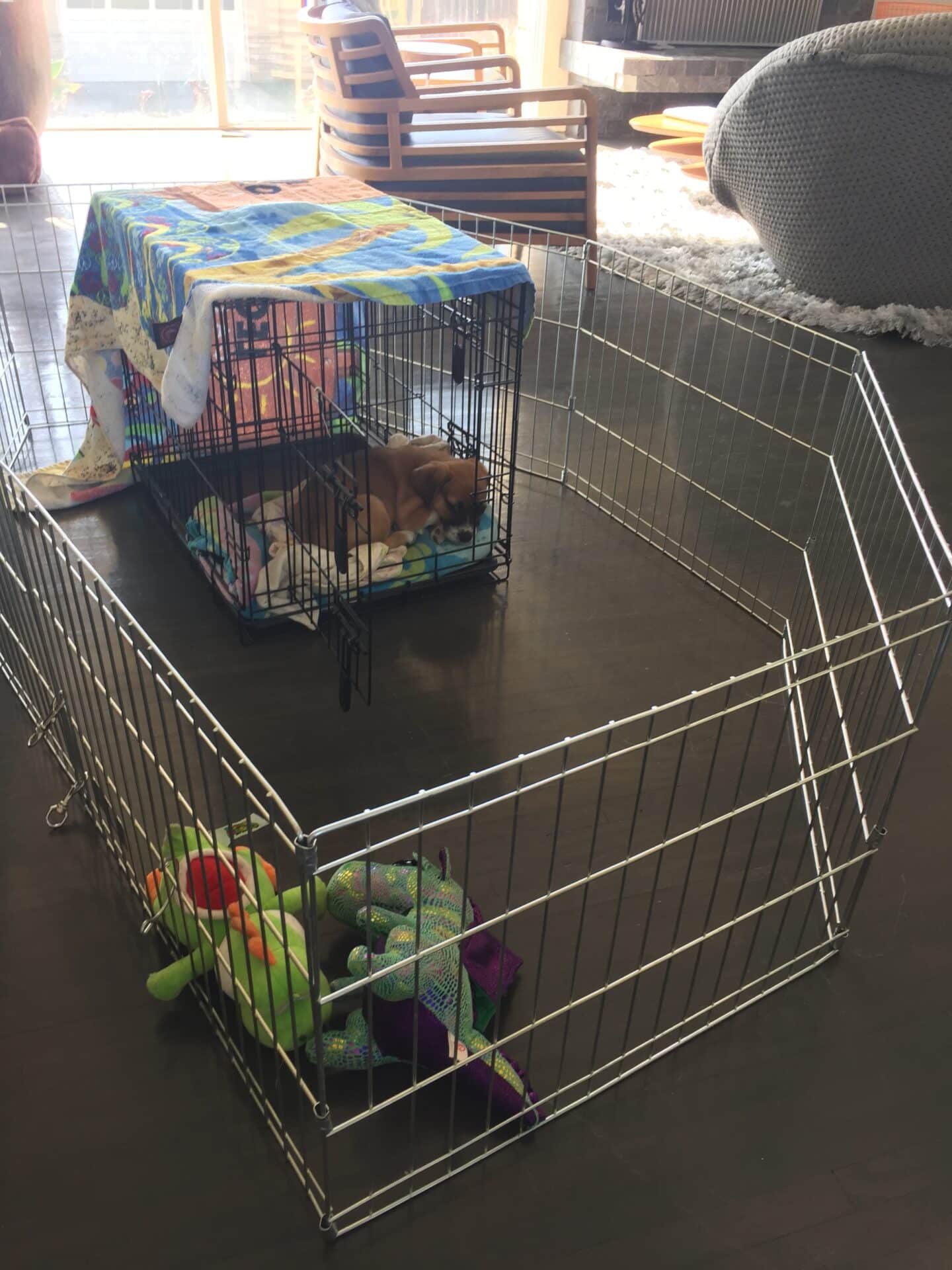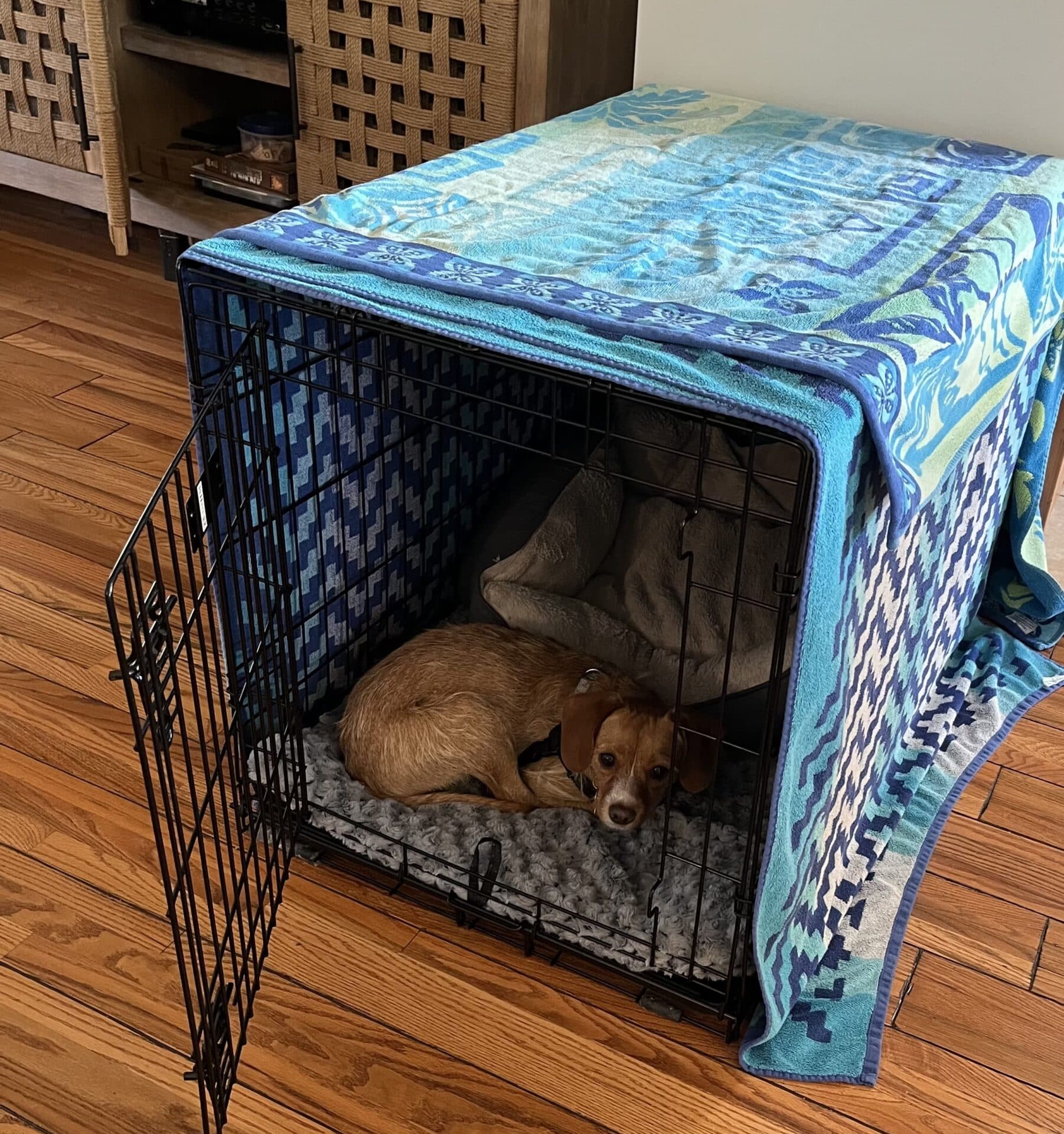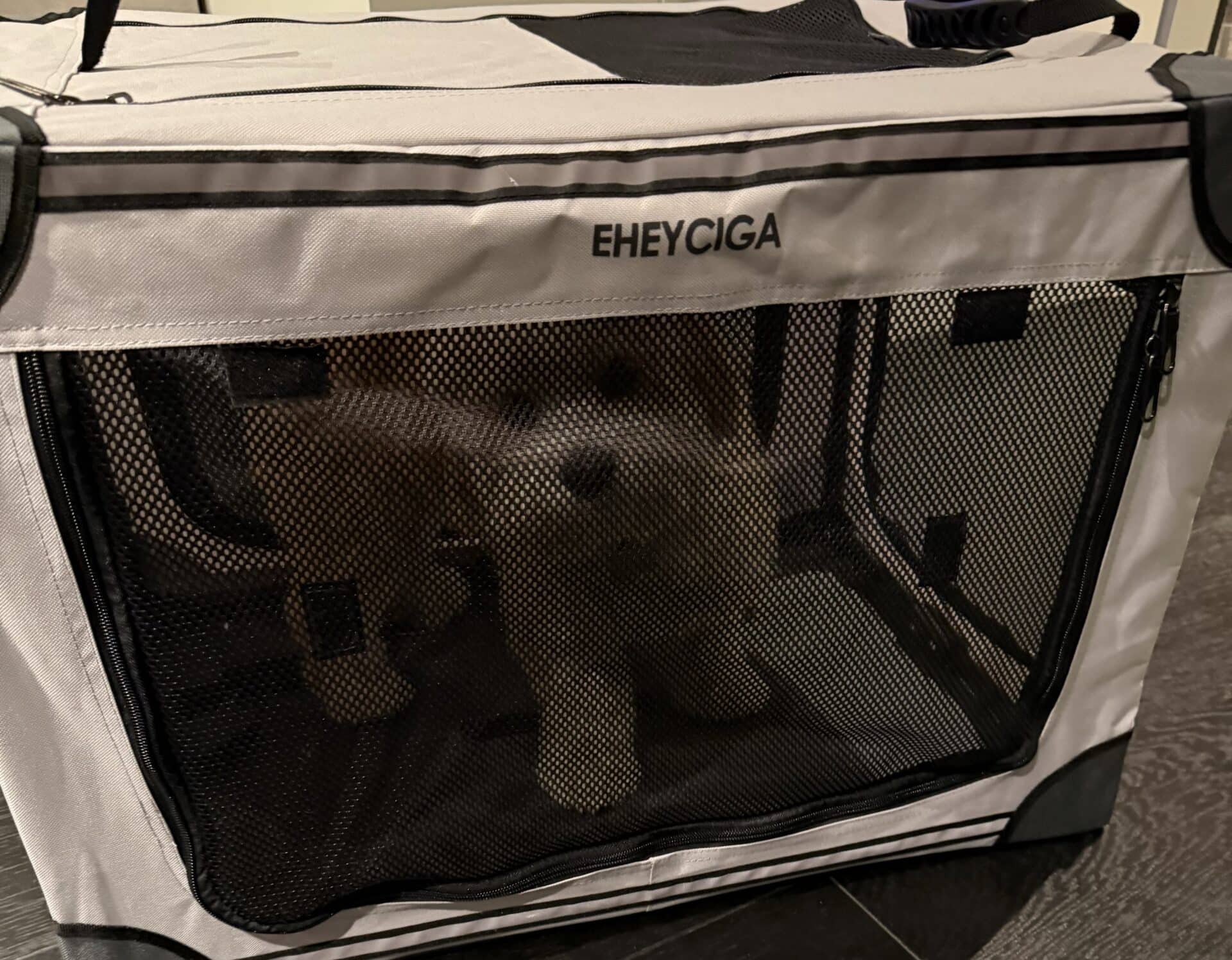Normalizing Crates, Pens, Confinement
There’s nothing natural to a puppy or dog about being alone. Being alone means being vulnerable to predators. It’s no surprise, then, that many puppies and anxious dogs become distressed when we leave the house, which many guardians find distressing for themselves.
If your puppy or dog is comfortable sleeping overnight in their crate, pen, laundry room, kitchen, etc., known as their “safe space,” that’s likely the best place for them while they’re home alone. If they’re not comfortable sleeping in their “safe space,” I recommend starting with crate or confinement conditioning.
For pups that are past the conditioning phase (they easily go to sleep there overnight), learning to be comfortable alone during daylight hours starts when at least 1 human is home.
Spending time in the safe space while their guardian’s at home builds a puppy or dog’s self-confidence. The goal is to expose them to this experience at varying times of the day, for increasing amounts of time.
The most convenient way to normalize this exercise is to regularly confine your puppy or dog during daily human activities. This makes it easy to remember and it turns your attention away from your pup.

Daily Opportunities:
- Human mealtimes (cooking and/or consuming)
- When feeding or bathing children or other pets
- While cleaning the house
- While bringing groceries or packages inside or taking things to the car
- While unloading groceries or packages
- While showering
- While getting the mail
- During movie and game nights
- During deliveries
- During workouts
- During phone and video calls
Literally anytime you’ll be spending time in the room where the crate or pen is located is a good time to practice.

Please Note:
I’m not recommending puppies or dogs spend hours in the crate while you’re home.
Short, frequent confinement is more effective for “normalizing” than 1 hour or longer stays will be. Repetition, rather than duration, is key for positive results.

Dee Green has been a professional dog trainer and canine behavior consultant for more than 20 years. She specializes in puppies up to 18 months, and fearful, anxious and reactive dogs of all ages.
©️2025 Dee Green, all rights reserved SantaMonicaDogCoach.com
